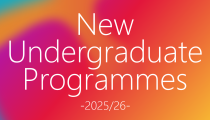Jan 2025 Entry
What's New
Biomedical Engineering research covers a variety of research activities to bridge the fast developing and innovative engineering technologies and the increasing needs of the medical and healthcare fields.
There are four main thematic research areas:
-
Medical Imaging, Instrumentation and Sensing
-
Molecular, Cellular and Tissue Engineering
-
Neuromusculoskeletal Science and Engineering
-
Prosthetics, Orthotics, and Rehabilitation Engineering
Medical Imaging, Instrumentation and Sensing
This thematic research area aims to design and develop new biomedical imaging methods and devices, biosensors, screening methods and treatment approaches.
A key focus of this group is biomedical ultrasound instrumentation and application including 3D ultrasound imaging, tissue elasticity imaging and measurement, photo-acoustic imaging, ultrasound molecular imaging, ultrasound neuromodulation, ultrasound biomicroscopy, ultrasound tissue characterisation, and ultrasound assessment of the heart, breast, liver, skin, tendon, muscle, cartilage, diabetic foot, etc.
Another key focus of this group is biomedical sensing, including the development of nano- and micro-biosensors, microfluidic devices, nanoporous membranes for sensing, microchips and micro- and smart-drug delivery devices.
We also develop wearable sensors for healthcare for motion and vital sign monitoring.
Please click here to find out more about the research interests of our Department of Biomedical Engineering and contact our staff directly to discuss research opportunities.
Molecular, Cellular and Tissue Engineering
This thematic research area aims to apply engineering principles and tools to study the fundamental problems in tissue, cellular and molecular scales, overcoming the problem of tissue and organ failure, enabling the understanding of cellular behavior from molecular-level interactions, elucidating of the cellular and molecular mechanisms underlying a broad spectrum of diseases, and tackling the human health-related challenges.
We are dedicated to research fields involving cellular mechanics, cell micro-environment, cellular electrophysiology, biomaterials, nanotechnology for theranostics, imaging-guided stem cell therapy and regenerative medicine.
Please click here to find out more about the research interests of our Department of Biomedical Engineering and contact our staff directly to discuss research opportunities.
Neuromusculoskeletal Science and Engineering
This research area encompasses various clinical and engineering sciences related to the neuromusculoskeletal (NMS) system.
The scope covers the molecular understanding of the pathologies associated with the NMS system and health protection against those diseases and disabling processes; laboratory, imaging and functional assessment of the NMS system; acute and long-term therapeutics for NMS disorders; sports-related science and technology; and assistive technologies for rehabilitation and enablement.
A major focus of this thematic area is to help develop healthcare technology that will support NMS health in the community.
This research grouping has long-standing collaborations with a number of world-class programmes overseas as well as with the two medical faculties in the universities of Hong Kong.
Please click here to find out more about the research interests of our Department of Biomedical Engineering and contact our staff directly to discuss research opportunities.
Prosthetics, Orthotics, and Rehabilitation Engineering
Prosthetics and orthotics aim to improve the condition and function of people with disabilities and thus enhance their quality of life.
The scope covers the design of prosthetic components and interfaces, control of prostheses, smart orthotic devices, management of foot problems, stroke, cerebral palsy, scoliosis and other spinal deformities, outcome measures of prosthetic and orthotic interventions, CAD-CAM applications, evidence-based practice and other engineering and clinical aspects of prosthetics and orthotics.
Rehabilitation engineering applies existing or emerging technologies for improving the independence and productivity of persons with disabilities. The Jockey Club Rehabilitation Engineering Centre has offered direct expert services to the disabled and rehabilitation communities since 1987. Many research projects have been developed, namely environmental control and monitoring systems, special seating and mobility devices, augmentative and alternative communication devices, therapeutic training systems and robotic devices.
The following research centre under BME is associated with this theme:
Jockey Club Rehabilitation Engineering Centre
This research team has long-term collaborations with locally and internationally renowned research teams.
Please click here to find out more about the research interests of our Department of Biomedical Engineering and contact our staff directly to discuss research opportunities.
Please visit our website for more information about our research facilities.
Compulsory - Two Academic Referee's Reports are required.
Compulsory
Optional
Compulsory
Optional - A standard form must be used for the submission of research proposal. Please click here to download the form.
Compulsory





